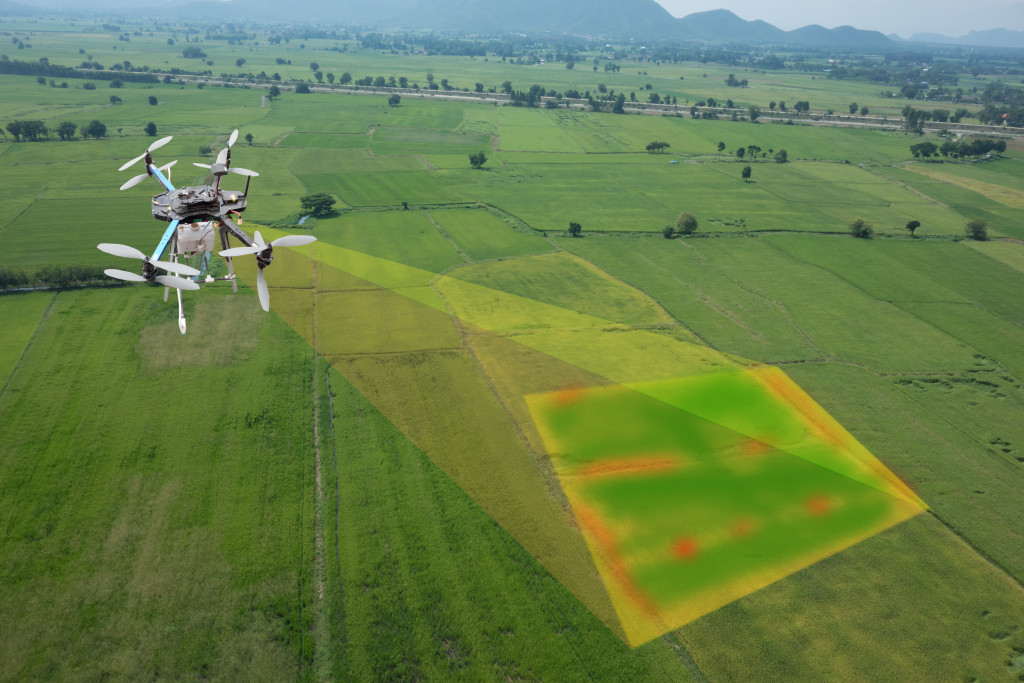Agriculture as an industry is a vital part of human and animal life, economies, and progress. It is fortunate that, over time, more and more investors are looking into agriculture. This constant influx of investments makes it possible for the farming industry to advance along with the evolution of technology.
Robotics, sensors, devices, GPS, and information technology all come together, allowing for the modernization of farming methods and equipment. This benefits farmers with higher crop productivity, reduced impact on natural resources, improved worker safety, greater efficiencies (resulting in lower market prices), and safer food quality. Ultimately, the rest of the world enjoys the proverbial fruits of agricultural labor.
What’s New in Agricultural Tech?
How does technology make the lives of farmers easier? Here are some ways:
Weather Tracking
Technology allowed for significant improvements in computerized weather modeling. Additionally, there are several specialized online weather services developed specifically for farmers. Farmworkers can now access weather information necessary to protect their crops from weather activity such as hail or frost. Likewise, weather tracking can help farmers optimize watering. Precise watering not only protects the health of produce; it has a significant environmental impact as well.
Agricultural Robotics
Innovation in this field resulted in drones, robotic seeders and harvesters, automated watering, and even automated tractors. Agricultural robots (or agbots) simplify farming processes like harvesting, watering, and soil maintenance, among others.
Hydroponic Vertical Farming

Vertical farming is the method of planting produce on vertical surfaces. While the conventional farming methods produce crops on level ground, vertical farming is, literally and figuratively, on the rise. On the other hand, hydroponics grows crops in soilless media, relying on nutrient-infused water to provide nourishment. There are several ways to set up vertical farming systems, such as A-frame hydroponic farm, zig-zag, stacked, etc.
Satellite Imaging
With satellite crop imagery, it is now possible to control plant growth without visiting a particular location. This technology allows farmers to detect anomalies and avert potential issues. Satellite imaging assists farmers in making intelligent decisions pertinent to crop management and land use.
Farmers can combine satellite imaging with other modern agricultural technologies like soil or water sensors to help increase crop yield and survivability. Maximized use of available technologies makes it possible to receive relevant satellite images and different helpful information about crop conditions.
Artificial Intelligence
Advances in AI have also proved to be helpful to improvements in the agriculture industry. There now are specialized algorithms developed to help farmers make better crop-related decisions which, in turn, will improve output and harvest. AI allows farmers to detect problems that the naked eye cannot otherwise see. AI in farming comes in remote sensors or unmanned aerial vehicles (UAVs) that can gather essential data 24/7. Artificial intelligence is instrumental in accessing information such as temperature, humidity, soil conditions, and, in some instances, even the well-being of crops.
Must-Have Farm Management Software
There now are several farm management software in the digital market, all designed and available to aid farmers in optimizing and managing farm operations and production. These software and apps help automate farm activities such as record management, data storage, monitoring and analysis of farming processes, and streamlining production and work schedules. Below is a list of some software farmers can use now to make farm management more manageable:
- Agrivi: This software helps farmers easily plan, monitor, and analyze activities on the farm. Agrivi features an automated pest and disease detection system that alerts and allows farmers to protect their crops on time.
- Trimble: Trimble Agriculture saves time, almost eliminates human error, and enables sound decisions that will improve any farmer’s bottom line. It allows access to field mapping tools that will significantly assist in shifting to precision agronomy.
- FarmLogs. FarmLogs is a comprehensive software program that lends efficiency to managing all aspects of farm operations. FarmLogs is available as an app for Android and iOS users. It features interactive maps that can assess the results of seasonal trials and help farmers project yield performance.
There is no doubt that farming and the whole agricultural industry are essential for the nourishment and continued existence of the human race. The world population is continuously growing, so the global demand for food just keeps growing. It is now easy to appreciate the importance of these emerging agricultural technologies. These advancements don’t just open up opportunities for profit and progress but, more importantly, bear an enormous impact on diminishing environmental harm. Though no technology is flawless, all industries, especially farming, are fortunate that technology continues to evolve.
